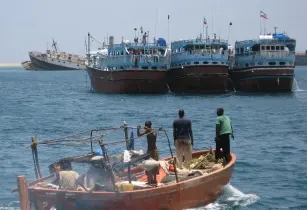On 15 February, a new national action plan for enhancing and empowering Somali women in their country’s maritime sector was launched at a high-level event bringing together senior government officials and representatives from civil society and the international community, including the United Nations (UN)
Speaking at the launch event for the Women in Maritime Sector (WiMS) National Action Plan, Somalia’s Deputy Prime Minister, Salah Ahmed Jama said, “The ‘Blue Economy’ that we want to exploit includes fisheries from our waters and all the goods that pass through it; we also have to consider the value chain from the fisherman, to the buyer, to the marketer and to the investor. In order to succeed in this venture we need to empower women across the whole value chain.”
UN Secretary-General’s Deputy Special Representative for Somalia, Anita Kiki Gbeho remarked that the WiMS National Plan would help to ensure that women operating across the maritime domain were provided increased visibility and opportunities to not only participate in, but also benefit from the sector. The plan marks the culmination of a Somali-led process that began in September 2019, with coordination and support from the UN Assistance Mission in Somalia (UNSOM) and the European Union Capacity Building Mission in Somalia (EUCAP Somalia).
Moreover, given the critical shortage of maritime skills that exist due to the lack of educational and institutional capacity, the plan also helps to collectively develop women's needs and priorities in the maritime sector, within both the private sector and government institutions.
Gbeho further emphasised that it was now crucial to transform the Action Plan into projects that could be supported with technical and financial assistance. In this respect, she encouraged UN agencies such as the UN Office on Drugs and Crime (UNODC), the UN Industrial Development Organisation (UNIDO), the UN Environment Programme (UNEP), the International Labour Organisation (ILO) and the Food and Agriculture Organisation (FAO) to continue their support.
“Opportunities are limitless in the maritime domain. With its vast coastline, Somalia’s ‘Blue Economy’ could be at the forefront of delivering change and generating wealth for Somalia’s women and, indeed, for the nation,” added Gbeho, who also serves as officer-in-charge of the UNSOM.





